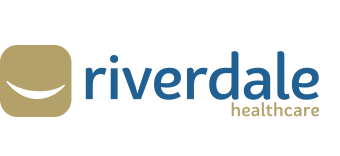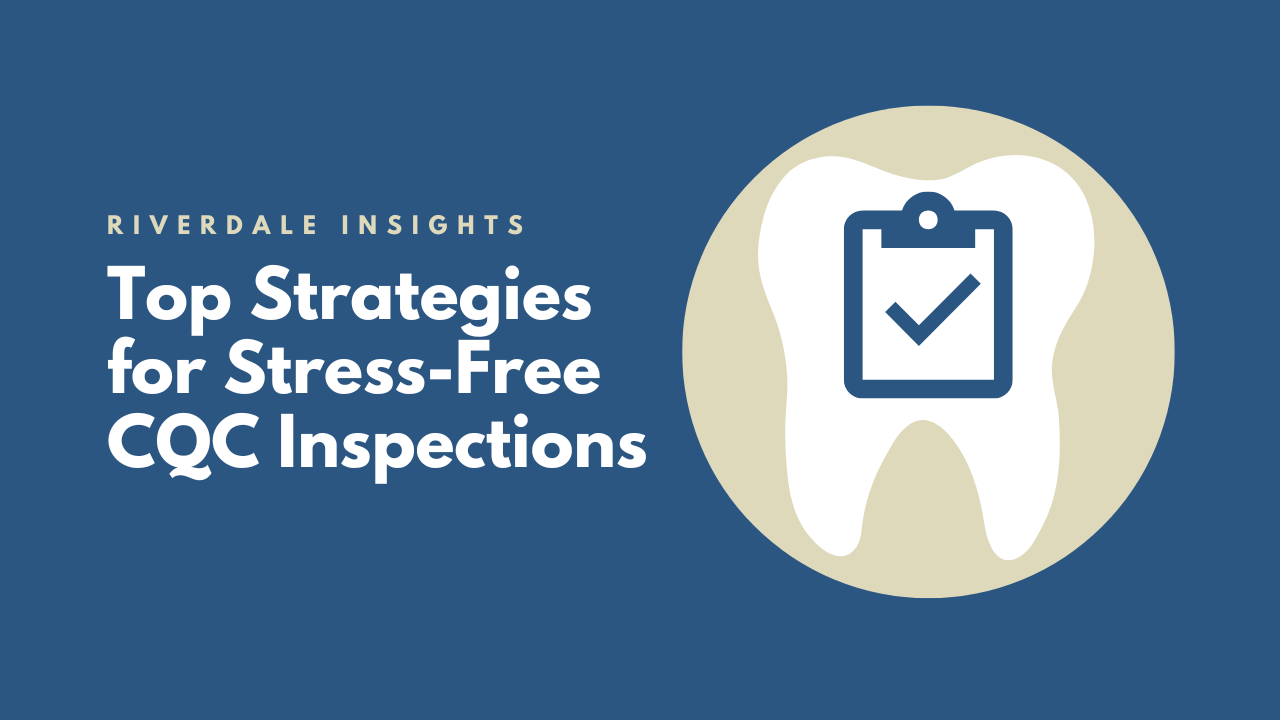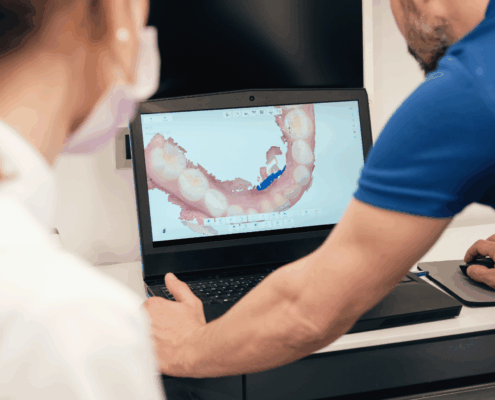Top Strategies for Stress-Free CQC Inspections

Preparing for a CQC inspection can be a daunting task, especially for busy practice managers juggling numerous responsibilities. However, with the right approach, it’s possible to manage this process efficiently and without unnecessary stress. Recently, Lamia Murray, one of our very own practice managers based at the Charnwood Dental Practice, shared her expert advice on this topic with a publication on Dentistry. Her personal experiences will practical tips to help you stay on top of compliance and be ready for any inspection.
Who are the CQC?
The Care Quality Commission (CQC) are the independent regulators in England, ensuring quality of services across sectors such as care, dentistry, GP services and other health services. They act in accordance with the Health and Social Care Act 2008, ensuring that services provide 5 key metrics during operation:
- Safety: The service ensures that protection from harm and abuse is maintained.
- Effectiveness: Does the treatment and service provided allow individuals to maintain the best quality of life outcomes?
- Caring: Do the staff show compassion, kindness and respect when delivering service?
- Responsive: Can the service organise responsibilities effectively to deliver quality of service?
- Well-led: Are the leadership promoting an open and fair working environment, along with high-quality care?
By delivering the highest standards towards the 5 outlined metrics, the CQC can assess and deliver feedback that’s far easier to measure against the measures you maintain internally, to promote further improvement and harnessing further potential.
Our top tips for Compliance preparation
Here are the top recommendations from one of our leading experts in dental practice management, Lamia Murray, who has built a strong rapport at Charnwood Dental Practice.
Dedicate Time for Compliance Reviews
Lamia emphasises the importance of regularly reviewing compliance requirements. Setting aside dedicated time each week or month to focus solely on compliance can make a significant difference. Being creative with your time management also lends itself into one of the 5 key metrics; being responsive and organising effectively. For example, integrating these reviews into weekly or bi-weekly staff meetings ensures that everyone is on the same page and allows for any necessary adjustments to be made promptly throughout the areas of practice.
During these sessions, Lamia outlines the following critical questions:
- What do you need for the next inspection?
- What will the CQC ask for?
- Has everything been completed and documented?
- Can you provide sufficient evidence for all compliance activities?
By implementing these adjustments, improved team cohesiveness can be achieved, ensuring all staff are able to focus on working towards a common goal.
Maintain Detailed Logs
Keeping comprehensive records is crucial for ensuring your practice remains compliant. Lamia suggests maintaining detailed logs for all maintenance and service certificates, audits, and risk assessments. If any discrepancies or gaps are identified, prioritise addressing these issues immediately.
Another key aspect is ensuring that staff profiles and folders are up-to-date with their CPD (Continuing Professional Development) records attached, as failure to do so could be deemed as a lack of proper governance by the CQC, resulting in poor reviews for compliance and leadership. Being proactive in rectifying any shortcomings demonstrates a commitment to maintaining high standards and can help avoid last-minute stress before an inspection.
Delegate Tasks to Senior Team Members
Delegation can significantly reduce the burden on practice managers. Lamia advises involving senior team members, such as head nurses and head receptionists, in compliance-related tasks. This approach not only lightens your load but also empowers your team and fosters a collaborative environment.
Delegation is not a sign of weakness; rather, it’s a practical approach to managing workload effectively leaning into the qualities specified becoming well-led. It also provides team members with opportunities for professional growth and increased responsibility.
Seek Support
Lamia speaks from experience within the role of a practice manager, outlining the stress that comes with the role, so it’s important to recognise the value of asking for support when needed. Don’t hesitate to delegate tasks to capable team members who are eager to acquire additional responsibilities. This promotes greater collaboration within practice, provides opportunities to team members y entrusting them with these tasks, and can reduce the stress for the practice manager whilst ensuring the practice remains compliant.
Practical Tools and Tips
For those looking for tools to streamline compliance management similarly to Lamia, consider using digital solutions that offer a way of remaining organised, such as iComply or CQCsmart. These platforms are capable of audit trails, automated reminders, and storing documents for ease of access. By making these adjustments, you could see a significant reduction of stress, whilst remaining organised ahead of any inspection.
Conclusion
By dedicating time to regular compliance reviews, maintaining detailed records, delegating tasks, and seeking support, you can manage your practice more effectively and face CQC inspections with confidence. For further reading, we encourage you to read Lamia’s publication on Dentistry, where she will be hosting future publications aimed to help and alleviate the pressures faced within the management of dental practices.





